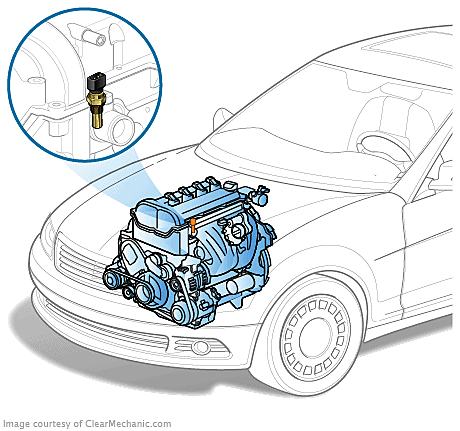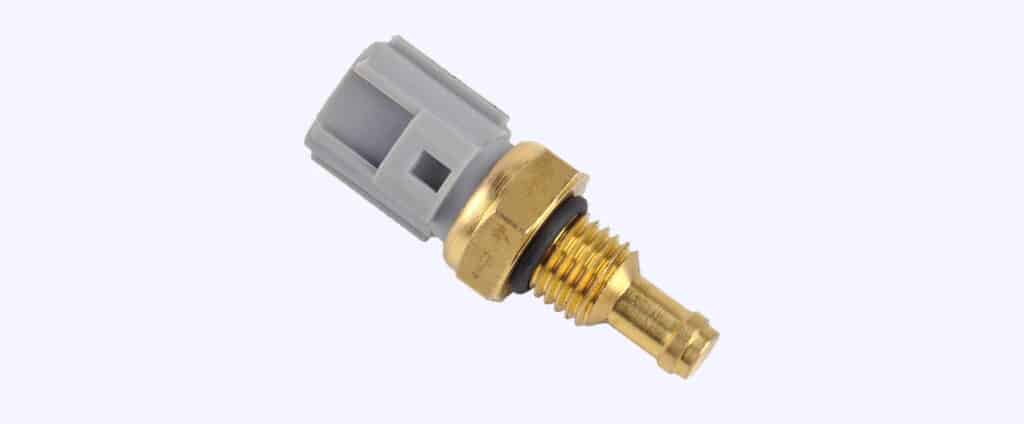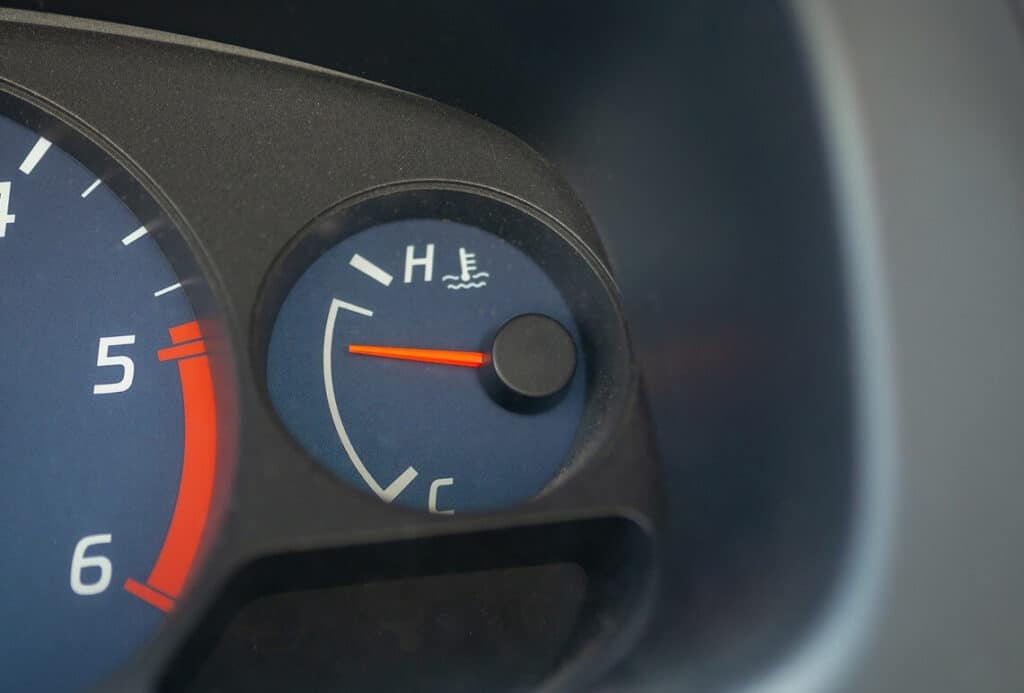Introduction: Monitor Your Engine’s Temperature with a Reliable Sensor
A faulty temperature sensor can lead to inaccurate readings and potential engine damage. In this guide, we’ll cover the importance of a temperature sensor, the cost of replacing one in Canada, and tips for prolonging its lifespan. Let’s dive in!
What is a Temperature Sensor?
A temperature sensor is a device that monitors the engine’s coolant temperature, providing crucial data to the engine control module (ECM) for optimal engine performance and temperature regulation.
How Much Will it Cost to Replace a Temperature Sensor in Canada?
• Parts: $20 – $50
• Labor: $50 – $100 (0.5 to 1 hour)
• Total: $70 – $150
The cost of replacing a temperature sensor in Canada varies depending on the make and model of your vehicle. On average, you can expect to pay between $70 and $150 for parts and labor.

What are the Symptoms of a Faulty Temperature Sensor?
Symptoms of a faulty temperature sensor can vary, but some common signs include:
• Inaccurate temperature readings: The temperature gauge on the dashboard may display incorrect readings, fluctuate erratically, or not move at all.
• Poor engine performance: A faulty temperature sensor can cause the engine to run poorly, with symptoms such as rough idling, stalling, hesitation, or reduced power.
• Decreased fuel efficiency: The engine control module (ECM) relies on accurate temperature readings to adjust the air-fuel mixture. A faulty sensor can cause the ECM to make incorrect adjustments, leading to reduced fuel efficiency.
• Engine overheating: If the temperature sensor doesn’t detect an overheating engine, it may not trigger the necessary cooling mechanisms, such as turning on the radiator fan. This can lead to engine overheating and potential damage.
• Check engine light: A faulty temperature sensor can trigger the check engine light to illuminate, indicating that there is a problem with the engine management system.
• Hard starting or poor cold-start performance: A bad temperature sensor may not provide the ECM with accurate information about the engine’s temperature, causing starting difficulties, especially in cold weather.
• Failed emissions test: Inaccurate temperature readings can affect the engine’s emissions, causing the vehicle to fail an emissions test.
How Long Does a Temperature Sensor Last?
A temperature sensor typically lasts between 160,000 and 240,000 kilometers. However, its lifespan can be affected by factors such as engine operating conditions and overall maintenance of the cooling system.
How Does a Temperature Sensor Become Defective?
A temperature sensor can become defective due to several factors:
• Age and wear: Over time, temperature sensors can wear out or degrade, leading to reduced accuracy or complete failure.
• Corrosion: Moisture, chemicals, and contaminants can cause corrosion on the sensor or its connections, disrupting the flow of electrical signals and leading to inaccurate readings.
• Damage to wiring or connectors: Physical damage to the wiring or connectors, such as from heat, abrasion, or impact, can cause the sensor to malfunction.
• Thermal stress: Repeated exposure to extreme temperature changes can cause the internal components of the sensor to expand and contract, leading to eventual failure.
• Manufacturing defects: Poor-quality materials or manufacturing processes can result in a temperature sensor that fails prematurely.
• Contamination: Dirt, debris, or other contaminants can interfere with the sensor’s ability to accurately measure temperature, leading to incorrect readings.
• Electrical issues: Voltage fluctuations or electrical shorts within the vehicle’s electrical system can damage the sensor or cause it to provide inaccurate readings.

How Can a Faulty Temperature Sensor Affect Other Systems in the Car?
A faulty temperature sensor can cause:
• Poor engine performance: A faulty temperature sensor can lead to incorrect fuel-to-air ratios, causing reduced engine power, stalling, or hesitation during acceleration.
• Increased emissions: Inaccurate temperature readings can cause the engine control module (ECM) to improperly adjust the air-fuel mixture, leading to increased emissions.
• Overheating: A faulty temperature sensor may not warn the driver of an overheating engine, potentially causing severe engine damage.
• Reduced fuel efficiency: Inaccurate temperature data may result in the ECM providing a richer fuel mixture than necessary, leading to decreased fuel efficiency.
• Inaccurate dashboard readings: A faulty temperature sensor can cause the temperature gauge on the dashboard to display incorrect information, preventing the driver from detecting an overheating issue.
• Potential damage to other components: An overheating engine can cause damage to other components, such as the radiator, water pump, or head gasket.
• Malfunctioning cooling fan: If the temperature sensor fails, the cooling fan may not activate when needed, exacerbating overheating issues.
Is it Safe to Drive with a Faulty Temperature Sensor?
Driving with a faulty temperature sensor can be risky, as the sensor is responsible for monitoring the engine coolant temperature and providing accurate readings to the vehicle’s computer. This information is crucial for the engine control module (ECM) to properly manage the engine’s performance, fuel efficiency, and emissions. When the temperature sensor fails, it can lead to incorrect readings and compromised engine performance, which may cause long-term damage to the engine.
While it might be possible to drive short distances with a faulty temperature sensor, it is not recommended. The inaccurate readings may cause the engine to overheat, which can result in severe damage to the engine components, such as warped cylinder heads, blown head gaskets, and even complete engine failure. Additionally, the ECM may not be able to adjust the air-fuel mixture properly, leading to poor fuel efficiency and increased emissions. It is essential to address the issue as soon as possible to prevent further damage and ensure the safe and efficient operation of your vehicle.
How Can I Make My Temperature Sensor Last Longer?
• Maintain your vehicle’s cooling system by regularly checking and replacing coolant
• Inspect and clean electrical connections regularly
• Avoid excessive engine heat by ensuring proper engine cooling and operation

Can a Mobile Mechanic Replace a Temperature Sensor?
Yes, a mobile mechanic can replace a temperature sensor, provided they have the necessary tools and expertise. This convenient service allows you to have your temperature sensor replaced without having to visit a repair shop.
Conclusion: Temperature Sensor Replacement
Regular maintenance and timely replacement of your temperature sensor are essential for optimal engine performance and temperature regulation. By following the tips provided in this guide, you can prolong the life of your temperature sensor and keep your engine running smoothly.
Next Steps
Book Your Temperature Sensor Replacement Service
The service most frequently booked by those who read this article is Temperature Sensor Replacement. Uchanics’ expert technicians make the process even more convenient by bringing the service right to your doorstep. We perform this job at your home or office, covering over 40 cities in Ontario, including Toronto, Mississauga, Brampton, Oshawa, Ajax, Scarborough, and more. Our commitment to excellence has earned us more than 700 glowing 5-star reviews. Choose Uchanics for your Temperature Sensor Replacement and experience unparalleled convenience and top-quality service.
